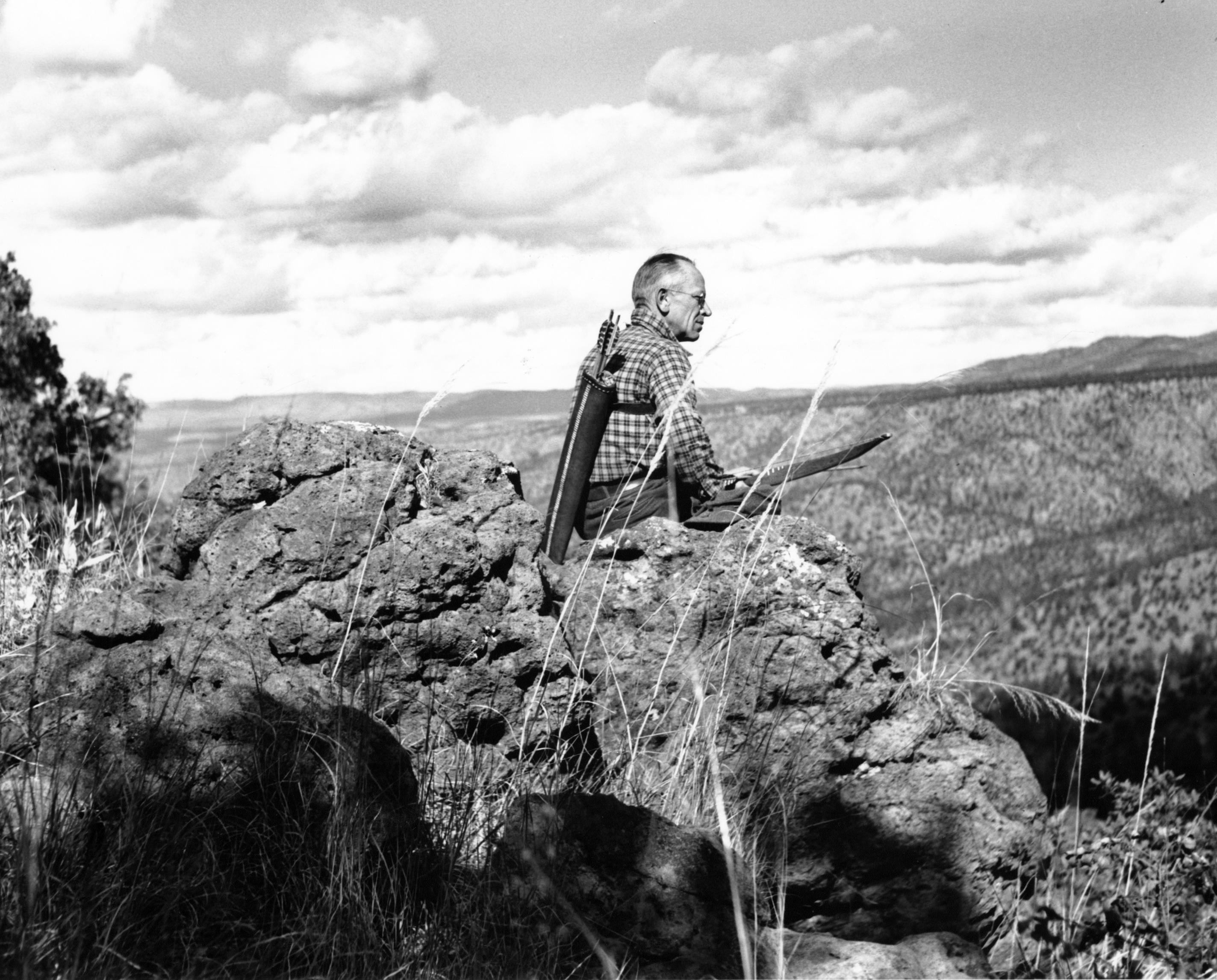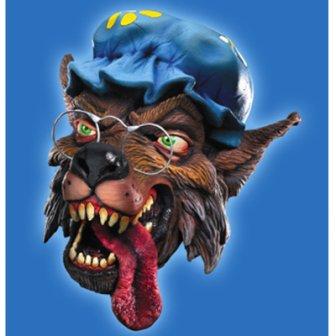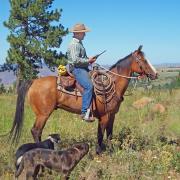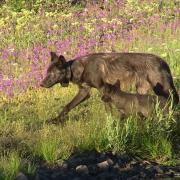
A 63-year-old essay provides the perfect answer to an outdated letter written in the 21st century.
Old prejudices die hard.

A recent letter to the editor in my local newspaper – the Wallowa Chieftain – starkly brought that point home. It said in part:
"The wolf is the most destructive animal on Earth.' Of what value are they? They are ravaging our elk and deer herds and terrorizing our livestock. Their insatiable hunger drives them out of the woods to attack livestock and people. These are the true facts. If the number of wolves is not controlled in Wallowa County, walking our many trails will no longer be safe. We have had cattle on this land for more than 35 years and not one has ever killed until now."
Take that in for a while. Pretty hard to believe, isn’t it?
Just the Facts
After getting past my disbelief of reading such rhetoric, I considered a response. As I composed it in my head, I got caught up – as I often do – in an exercise of point-by-point fact-checking.
People will be attacked. Our trails won’t be safe?
- In the last century, exactly 2 people have been killed by healthy wild wolves on the entire North American contient. No one has been so much as licked by a wild wolf in Oregon since they began returning home.

Wolves are terrorizing livestock?
- Income from the livestock industry has increased in Wallowa County every year since wolves returned and stats are available.
- Of the 1.3 million cows in Oregon, 55,000 die each year before being shipped to the slaughterhouse from things like weather, disease, and domestic dogs. Last year, wolves killed 4 – one was illegally grazing on public lands.
- A single lightning strike in Wallowa County killed more cows in a herd managed by an OCA lobbyist than wolves in the entire state over the last 3 years combined.
Wolves are ravaging elk and deer herds?
- Elk herds in Wallowa County are above management objectives. The livestock industry regularly argues for reducing those numbers.
Ms. Anderson’s cows haven’t killed in 35 years?
- Maybe this isn’t what she meant, but that’s good news. After all, according to the CDC, cows kill about 22 people each year in America.
Saying “these are true facts” doesn’t make it so. But these are real numbers from real sources. Click the links (and this one) to learn more.
Values
Then it occurred to me that pointing out obvious misinformation was missing the point. This wasn’t about facts and figures. It was about something else – fear, anger, a feeling of powerlessness…a radically different view of the natural world and our place in it.
Though the letter seemed to come from a previous century, the perfect response had been written over 60 years earlier.
In 2016, Ms. Anderson writes
“The wolf is the most destructive animal on Earth.' Of what value are they?”
In 1953*, Aldo Leopold wrote:
“The last word in ignorance is the [wo]man who says of an animal or plant, 'What good is it?' If the land mechanism as a whole is good, then every part is good, whether we understand it or not. If the biota, in the course of aeons, has built something we like but do not understand, then who but a fool would discard seemingly useless parts? To keep every cog and wheel is the first precaution of intelligent tinkering...
"Harmony with land is like harmony with a friend; you cannot cherish his right hand and chop off his left. That is to say, you cannot love game and hate predators... The land is one organism.”
I hate to wordsmith one of America’s greatest writers. However, I might quibble with one word choice. "Ignorance" is accurate and it’s validating. But it’s incomplete.
We’re all ignorant when it comes to the natural world. Even the simplest landscape is infinitely complex. It defies complete understanding. To admit as much takes humility. And humility is a rare trait indeed.
Humility doesn’t sit well with those who believe the world and all the things in it are here for our immediate and exclusive benefit and exploitation. It’s hard to accept for those who believe America’s greatest days included sanitizing the landscape of anything wild, native, inconvenient, or outside our control.
Those who need certainty are easy prey for those who simply state - and repeat - “these are true facts”.
Here We Are…
 There are reasonable disagreements to be had on many aspects of wildlife conservation and management. Making choices based on uncertainty is difficult enough. Making sound choices based on things that are objectively untrue is at best a matter of chance.
There are reasonable disagreements to be had on many aspects of wildlife conservation and management. Making choices based on uncertainty is difficult enough. Making sound choices based on things that are objectively untrue is at best a matter of chance.
If we don’t start from a shared set of facts, it’s hard to move forward together. But we live in a world where it’s easy to insulate ourselves from anything that challenges our pre-existing biases. Even presidential candidates can get away with picking and choosing their own versions of facts and history.
Whether it’s denying climate change, pretending the Federal Government doesn’t have authority over public lands, or believing our current president is secretly a muslim terrorist, anyone can find someone to validate their wildest biases.
As an aside, I can’t help but chuckle that the source for the "true facts" in Ms. Anderson’s letter is a book written by a guy named Ted B. Lyon. (If you don’t get the joke, say it out loud!)
When it comes to wolves, there’s an entire campaign of purposeful misinformation and fear. Exhibit A is a recent ghost written op-ed from the livestock industry that attempts to “set the record straight” on wolves before objectively re-writing history (here’s the counter-argument). Glen Beck obsessively rants about the nefarious sounding Agenda 21. The Koch bros funded a documentary whose main premise was that OR-7 is part of that vast conspiracy.
There is much to celebrate about the communities of the rural West. However they can be incredibly insular. It can be easy here to truly believe wolves are a threat. Conservationists must only advocate for their recovery to destroy rural America and get rich. If polls are to be believed, the majority of Americans who value native wildlife must be out of touch or themselves against the values of "Real America.
…And There We Go
Our decisions – personal and political – are far better when they have a foundation in facts and science and an accurate account of history. But they’re also driven by a blend of values, emotions, and our own experiences.
Emotions can drive us off-track. We don't all share the same values. But if we don’t agree on the most basic facts – the sky is blue, the earth is round, wolves are a native species that generally don’t harm people – it’s difficult to see us moving forward in a constructive manner.
That’s why it’s frustrating to see decisions in Salem made based on anecdote, myth, and politics masquerading as fact. It’s frustrating to see those who mislead and willfully misunderstand - those who bully and lie - rewarded by leaders whose job it is to represent all Oregonians.
A little humility can go a long way. We don't know everything. So when it comes to making choices based on imperfect information, I'm with Aldo. Conservative and conservation share a common root word. When it comes to our wildlife, it makes sense to me to be humble and apply a conservative and cautious approach.
Living in a beautiful place like Wallowa County, it can be easy to forget just how much we've destroyed, and take what’s left for granted. But what is wild is precious. And it is increasingly rare. There are plenty of landscapes with roads, feedlots, and nothing nearly so wild as a wolf.

But living here and rapidly approaching 40, I can say – as Aldo did –
“I am glad I shall never be young without wild country to be young in.”
If future generations are to be able to say the same, we can’t take what’s left of the wild for granted.
Antiquated prejudices and fear-mongering may be easy to dismiss. But if they simply lead to eye-rolling, they are dangerous things indeed.
* As noted on the Oregon Wild Facebook page, Aldo Leopold died in 1948. However his essay "Round River: From the Journals of Aldo Leopold" which (as far as I can tell) was first published in 1953. *
 '
'

